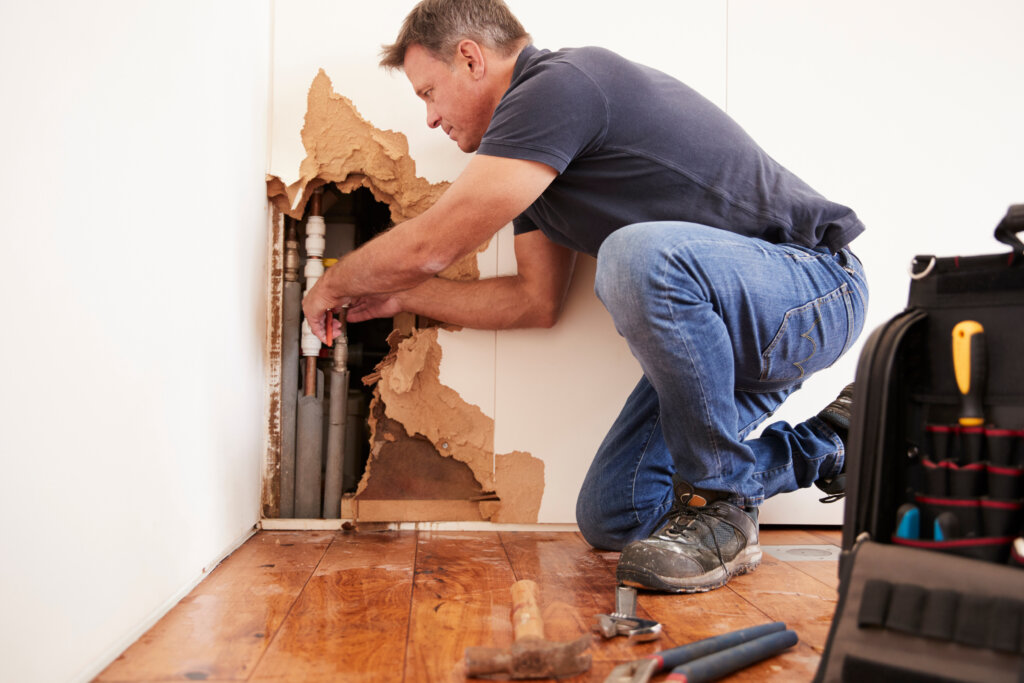Water damage is an expensive problem that can cost thousands of dollars in repairs, not to mention the hassle of filing a homeowners’ claim, replacing furniture, and upending home life. To prevent or reduce the risk of water damage, homeowners should take the following steps.
- Install a backwater valve
Sewer backup is one cause of water damage in the home that starts in the basement. To prevent this, install and maintain a backwater valve that will allow sewage to leave the home but keep it from coming back in.
- Inspect appliance hoses and faucets
Make a habit of annually inspecting the hoses leading to dishwashers, washers, water heaters, and refrigerators. Installing a water leak monitoring and shut-off system can provide invaluable alerts when there’s a leak. Be sure to replace cracked or leaking hoses as soon as possible.
- Inspect showers and tubs
Showers and tubs are almost daily exposed to water and the caulking and seal around them can become cracked, allowing water to seep into the walls. Be sure to check the caulking and reseal as necessary.
- Install an emergency pressure release valve
An emergency pressure valve protects the home’s plumbing system from increased pressure that may be caused by freezing pipes. This valve helps reduce the risk of pipes bursting during freezing weather.
- Check for cracks and leaks
Inspect the plumbing and heating pipes for cracks and leaks and make the necessary repairs as soon as possible.
- Inspect the roof
A leaking roof is one of the most noticeable ways water damage begins. Before springtime, inspect the roof for missing, damaged, or aging shingles. Make the necessary repairs or replacements to prevent leaks.
- Clean downspouts and gutters
Over time, leaves, tree branches, and other debris gather in the downspouts and gutters. Clear out the gutters and redirect downspouts away from the home.
- Inspect sprinklers and irrigation systems
Check the sprinkler system to make sure it isn’t watering the walls or reaching the foundations of the home. Also be sure to turn off and drain outdoor faucets during the winter season to prevent pipes from freezing and bursting and causing water damage.

